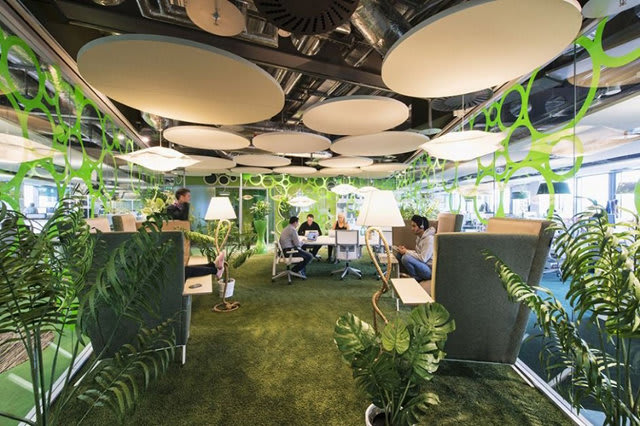2 minute read / Mar 2, 2016 /
The Startup Office of the Future
This weekend the New York Times Magazine published the annual Work Issue, a compendium of 9 articles reimagining the modern workplace. They span topics from building the perfect team, to managing a company fewer meetings, to eliminating bias in recruiting processes - even the social ramifications of so many people eating lunch at their desks, “desktop dining.”
It’s a wonderful collection of points of view on different management topics that affect startups. The first article How to Build a Perfect Team profiles an internal project inside Google to identify the characteristics of great teams.
First, on the good teams, members spoke roughly the same proportion, a phenomenon researchers referred to as the quality and distribution of conversational turn-taking…Second, the good teams all had high average social sensitivity, a fancy way of saying they were skilled at intuiting how others felt based on their tone of voice, their expressions and other nonverbal clues.
Google’s research supports work completed by Alex Pentland and Nada Hashmi of MIT, published similar results in 2010 in the journal Science and Mark Twain’s retort: Wisdom is the reward you get for a lifetime of listening when you’d rather have been talking.
The War on Meetings revisits Paul Graham’s seminal essay on Makers versus Managers and the different ways they each work at work. In addition, the article delves into holacracy, the radical management philosophy adopted by Zappos, Medium and some non-profits, that champions employee self-organization and a rigorous way of communicating involving tensions, clarifying questions and amendments & clarifications.
Also notable is Rethinking the Work-Life Equation which surfaces the way BDO, a large accounting firm, helps employees manage stress with the option to work from home for up to two days per week. “Workplace stress often is more accurately described as workplace guilt, an especially corrosive form of distress” One startup I work with has two Maker Days, days when no meetings are allowed and employees are encouraged to work from home or outside the office. The cultural impact and productivity impact has been meaningful.
Most importantly about all these articles, they ask more questions than they answer. After all, no single prescriptive piece of advice will apply universally to companies. But, the research and experiences highlighted in the the Work Issue will provoke conversation in board rooms, executive offsites and at the (virtual) watercooler about what the office of the future means for each company.
